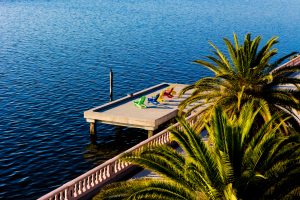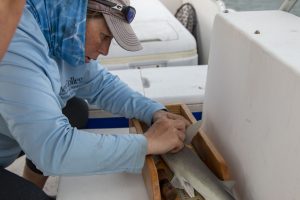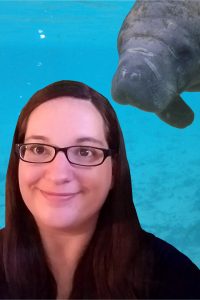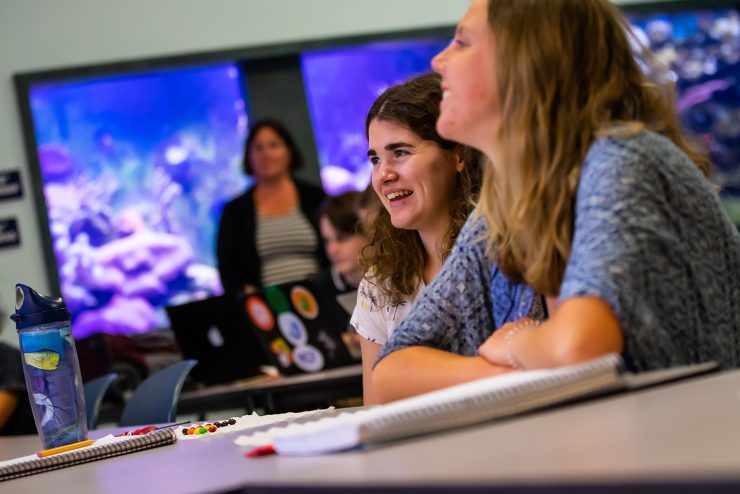
New College of Florida is the nation’s only liberal arts college with a marine research center located on its campus.
Built in 2001, the 10,000-square-foot Rhoda and Jack Pritzker Marine Biology Research Center on the New College campus provides hands-on research experiences for the next generation of scientists and conservation leaders. The Center is conveniently located about 100 yards from Sarasota Bay, which is a 56-mile-long urbanized coastal lagoon system with five embayments, as well as a U.S. Congress-designated Estuary of National Significance.
The Center features seven research labs with more than 400 species of marine and freshwater organisms–including fish, aquatic frogs and invertebrates. The Living Ecosystems and Teaching Research Aquarium (LETRA) room houses a 12,000-gallon research/display tank and six large aquaria (up to 2,000 gallons each). LETRA is used for hosting classes, research seminars, workshops and K-12 summer programs (it is also a public aquarium that is open year-round and hosts more than 1,200 visitors annually).
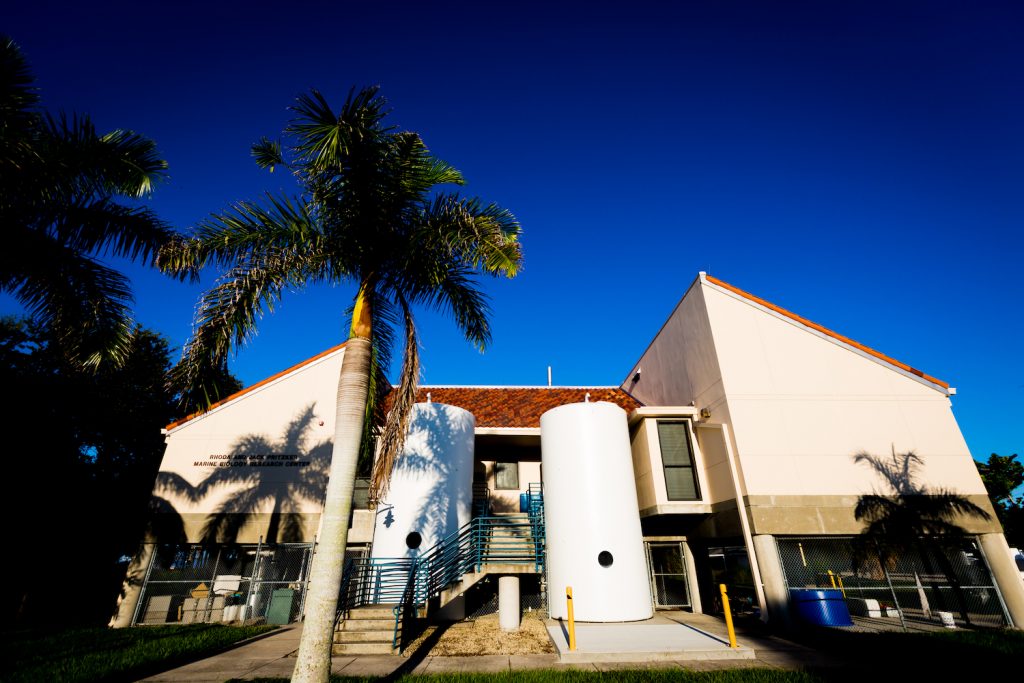
The Center’s flexible laboratory spaces can be quickly adapted to meet the needs of any marine research project. Aquaria come in various sizes and are suitable for holding a wide variety of organisms–from marine plants and delicate invertebrates to sharks and larger fish. Three storage silos (10,000 gallons each) hold the conditioned seawater supply for the building. Aquaria effluent is returned to the bay through a uniquely constructed wetland (created as part of a senior capstone project) west of the building, which acts as a natural filtration system by scrubbing gray water before it becomes bay water.
The Center also includes a 15,000-gallon flow tank and specialized facilities for coral propagation, tissue histology, and microscopy and imaging. Under a permit FKNMS-2009-073, the lab is permitted to hold, display and conduct limited non-destructive research on Caribbean coral obtained from a Florida Keys rescue site.
The Pritzker Marine Biology Research Center has a strong record of research, teaching and outreach. The lab is a member of the National Association of Marine Laboratories (and its southern division, the Southern Association of Marine Laboratories), as well as the Florida Institute of Oceanography and the Gulf of Mexico Coastal Ocean Observing System Regional Association. Faculty and staff are also active in the Florida Marine Sea Educators Association and the Council for Undergraduate Research.
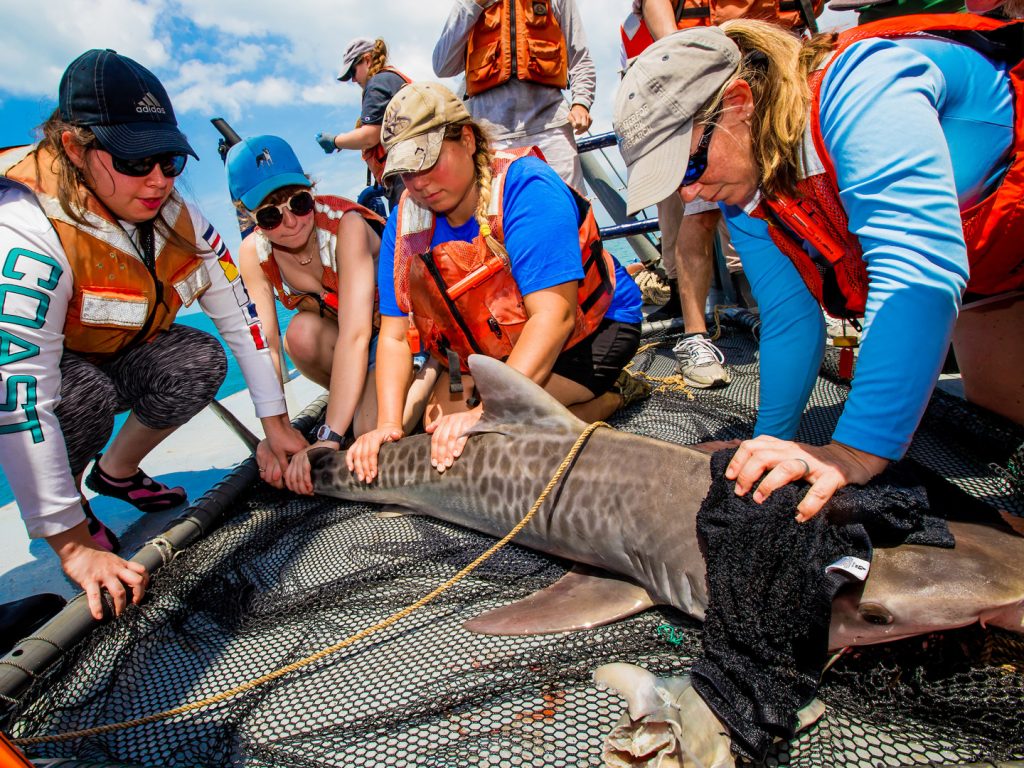
Study Marine Biology at New College
Education is at the core of the Pritzker Marine Biology Research Center’s mission. The Marine Biology Area of Concentration prepares students for graduate or professional studies in marine biology, biological oceanography and related fields, as well as for professional careers in marine or environmental fields.
Research and Outreach
Marine biology researchers at New College study all aspects of the marine environment with a focus on local organisms and ecosystems in Sarasota Bay. The Center also strives to serve the community through outreach programs.
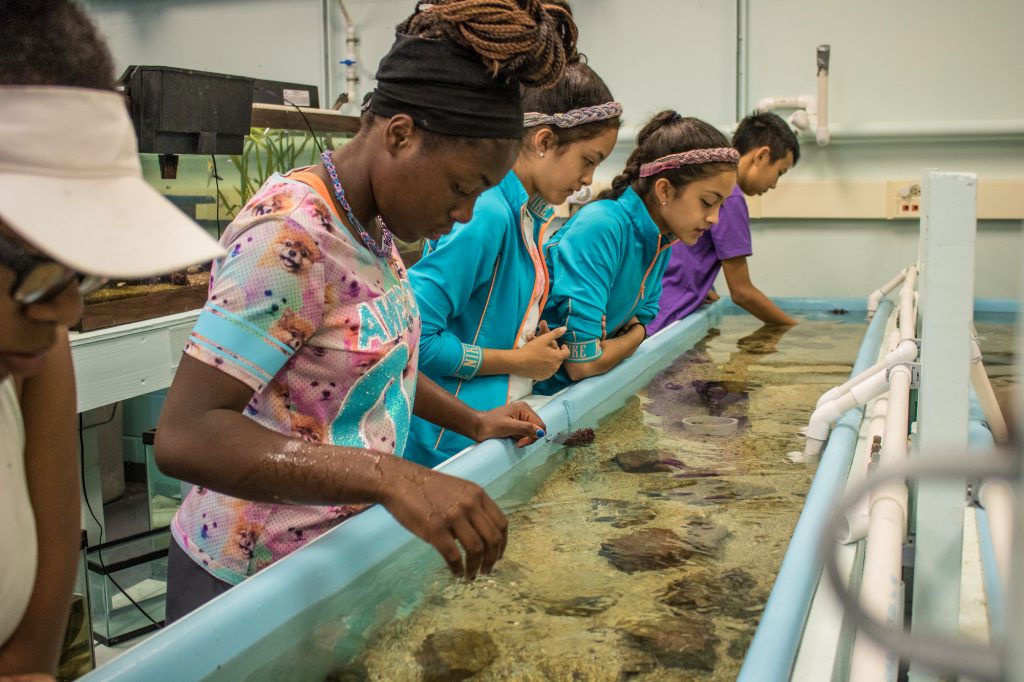
Community Outreach
The PUSH/SUCCESS summer program, now in its 21st year, provides life-changing experiences for middle and high school students, inspiring them to take an interest in the marine environment and STEM careers. Marine science center faculty provide training for K-12 teachers to enhance the STEM curriculum in the local public school system through our Teacher Workshops.
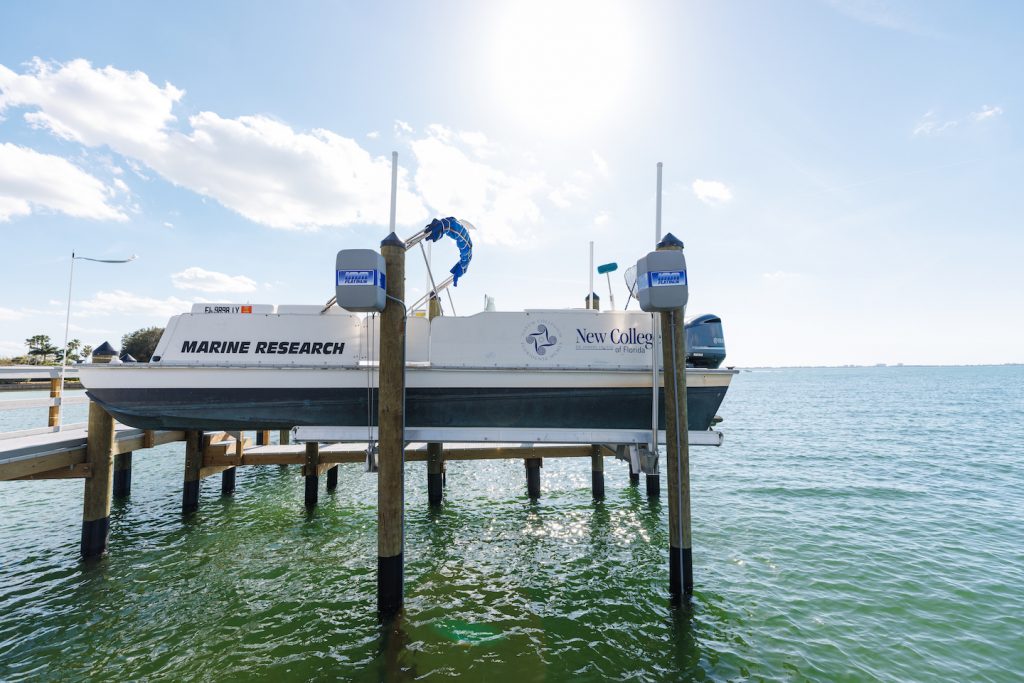
Research Vessels & On-campus Water Access
The newly constructed Marine Research and Waterfront Recreation Dock on the Caples Campus provides easy access to Sarasota Bay from campus. Research vessels for use by faculty and student researchers include the R/V Limbatus (26’ Beachcat fiberglass pontoon boat), R/V Pagurus (12’ Skeeter aluminum skiff), and the 14’ Rigid inflatable.
Current Research Projects
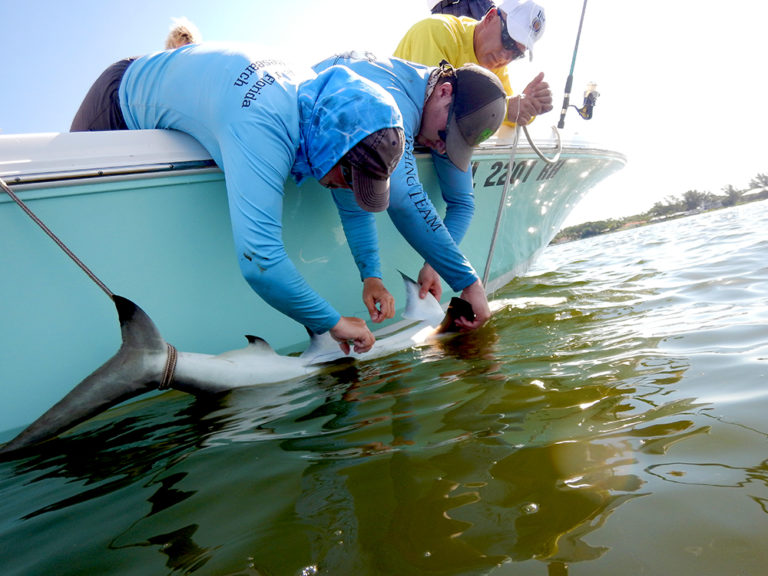
- EPA Tidy Island project
- Gulf of Mexico Shark Pupping and Nursery (GULFSPAN) survey
- Sarasota Coast Acoustic Network (SCAN)
- Acoustic ecology of Sarasota Bay
- Crustacean population biology
- Sensory ecology of elasmobranchs and bony fish
- Sirenian (manatee) biology
- Environmental biology of mangroves
- Marine bio-optics
- Neural basis of vocalizations in aquatic frogs
- Ecology and evolution of algae-cnidarian (coral) symbioses
- Temperature tolerance in corals, bleaching, effects of climate change
In the news
Faculty, Staff, and Research Scholars
Alfred Beulig
Emeritus Professor of Biology
Brandan Cole
Coordinator, Research Programs
Leo Demski
Emeritus Professor of Biology
Founding Director Pritzker Marine Biology Center
Sandra Gilchrist
Professor of Biology & Marine Science
Natural Sciences Division Chair
Bruce Kurtz
Research Scholar
Jenny Lee
Research Program Coordinator
Jenny Lee
Coordinator of Research Programs
Dr. Athena Rycyk
Associate Professor, Marine Mammal Science
Dr. Gerardo Toro-Farmer
Assistant Professor of Coastal and Marine Science
Dr. Amber Whittle
Director, Marine Mammal Science / Director of the Pritzker Marine Biology Research Center
Tonya Wiley
Research Scholar, Havenworth Coastal Conservation
Contact

